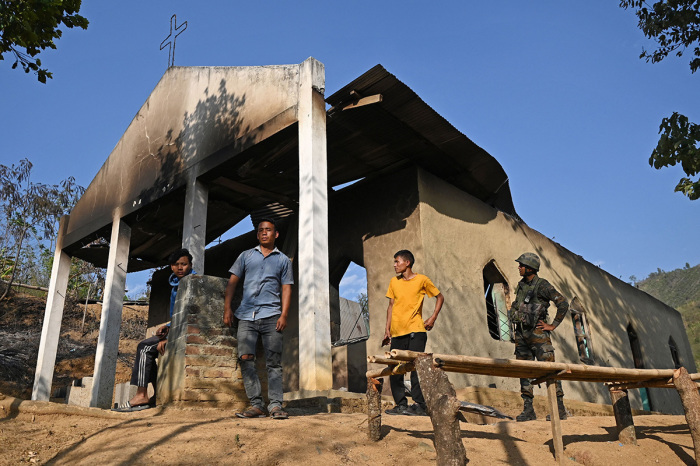Fresh violence erupts in Manipur, India, as Christian-Hindu tensions escalate

Twenty people have died in the past two weeks as ethnoreligious violence resurges in India's northeastern state of Manipur, where Christians and Hindus remain locked in a devastating conflict that has displaced more than 60,000 people since May 2023.
The latest outbreak of violence between the majority Hindu Meiteis and minority Christian Kukis has shattered hopes for peace in the region, with churches burned, children killed and security forces struggling to maintain order. The conflict has effectively segregated the two communities, forcing 50,000 Kuki Christians to flee the Imphal valley and 10,000 Meiteis to abandon their homes in Kuki-majority areas.
The recent surge of violence erupted in Jiribam, near the Assam border, after a series of retaliatory killings that began with the murder of a young Kuki woman found in a river. Tensions escalated dramatically after the Christian teacher and mother of three was killed and burned in an attack by Meiteis, leading to a deadly confrontation between armed Kukis and security forces that left 10 Kuki assailants dead.
The situation deteriorated further when six Meiteis, including three children, were found dead on Nov. 16. In response, protesters torched Kuki homes and six churches in Jiribam, while mobs in the state capital of Imphal burned government officials' residences. Authorities have imposed curfews, suspended internet access and closed schools.
"People are living in fear and tension. They don't know what will happen next," a senior Meitei church leader in Imphal told Global Christian Relief.
The handling of the deceased has become another flashpoint. When security forces airlifted the bodies of the 10 Kuki Christians to Churuchandpur for burial, government delays in releasing the bodies prompted an unprecedented protest. On Nov. 19, hundreds of black-clad mourners marched through Churuchandpur carrying empty coffins to honor the dead and protest their killing.
Critics have targeted Prime Minister Narendra Modi for his absence from the region throughout the crisis, noting that his Hindu nationalist BJP party, which governs Manipur, has failed to restore peace. "Though one and a half years have gone since Manipur slipped into anarchy, no effective and serious effort has been made to restore law and order," said a senior journalist in Imphal.
A church leader in the region expressed the community's growing frustration: "We had been praying for lasting peace and were feeling relaxed. But this latest conflict has shattered the peace to which Manipur was returning. While many are struggling for their livelihoods, the curfew has only worsened their situation."
Anto Akkara is a writer for Global Christian Relief (GCR), America’s leading watchdog organization focused on the plight of persecuted Christians worldwide. In addition to equipping the Western church to advocate and pray for the persecuted, GCR works in the most restrictive countries to protect and encourage Christians threatened by faith-based discrimination and violence.




























